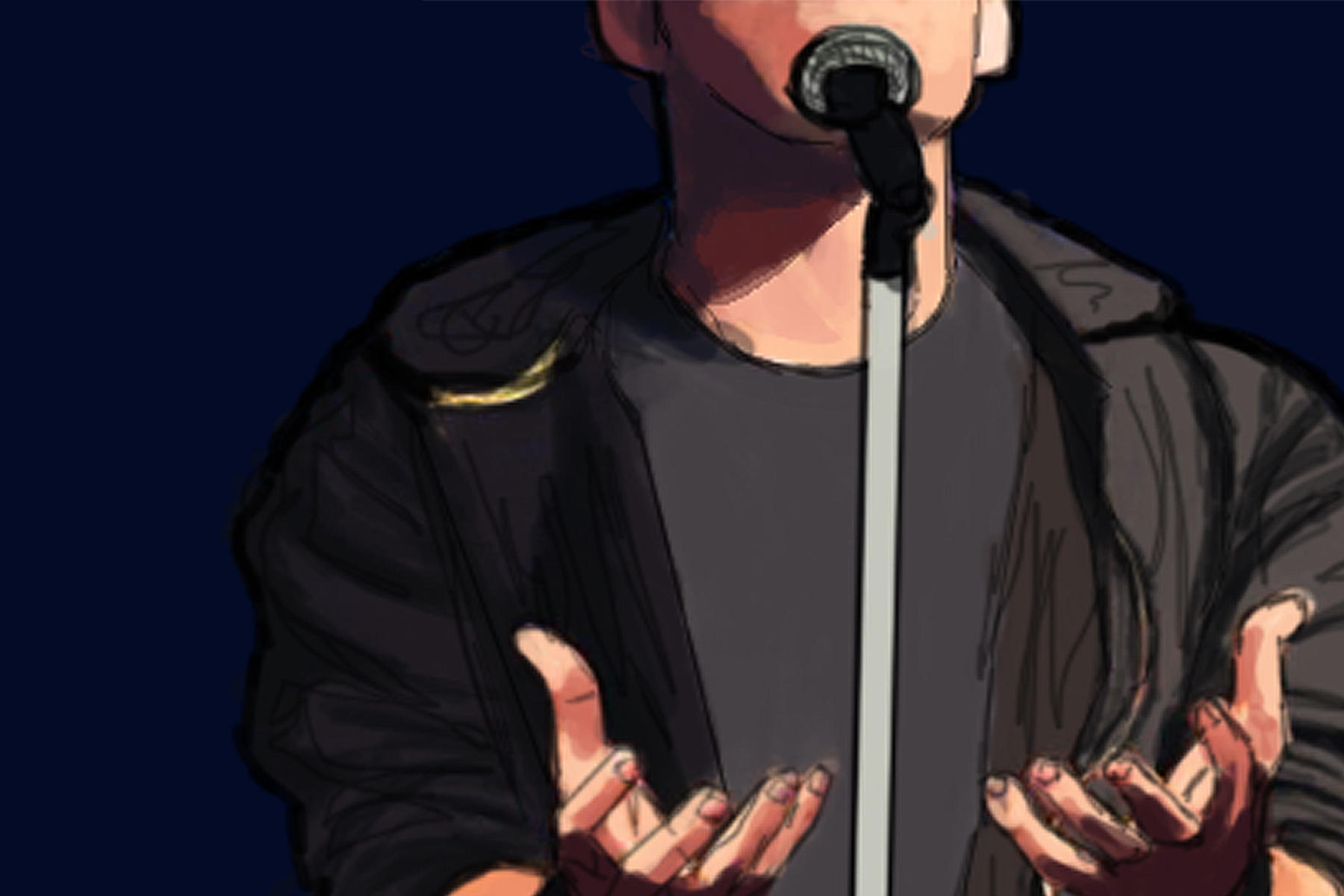If you’ve ever wondered what a true man looks like, you should follow Carlos Andres Gomez on social media. He’s a groundbreaking, Latino, award-winning poet who is trying to redefine masculinity.
Gomez is also the author of the Good Man Project, where he writes articles on how to redefine masculinity in the modern age and change gender stereotypes. Recently, he published a book, “Man Up: Reimagining Modern Manhood”
“I am tired of men dying because they feel alone, feeling like they are destined for prison or monotony or gender role-playing or anything less than their most divine of dreams,” Gomez writes. “I am tired of men hurting women and each other and themselves. I know that I am not alone in this. The men in my life have told me so.”
According to the American Foundation for Suicide Prevention, men commit suicide 3.53 times more often than women, because they don’t know how to talk about their emotions. Men are less likely to ask for help because they feel forbidden from talking about their feelings. It’s socially acceptable for women to express their emotions, but there’s a stigma that men are supposed to repress their feelings.
Gomez started a movement that aims to break the social construct that men aren’t supposed to be sensitive. He encourages men to let go of the stereotypical idea of a “man” to help create a more positive conversation surrounding male masculinity, understanding that as human beings, regardless of gender, we’re allowed to have feelings and express them. The poet is very open about his emotions and isn’t afraid to let the world know how good it feels. Everyone should be able to express themselves this unapologetically.
In his 2012 TED Talk, Gomez talks about carrying a paralyzed boy into his home and how it affected him emotionally. He says that he has always been a sensitive person, but was always trying to suppress those feelings because he had been told throughout his life to “man up.”
In that moment, he felt pressured to show strength despite his urge to burst into tears. These two words, “man up,” have haunted him for years, making him feel less of a man. This is the kind of toxicity that men must let go of, because it’s counterproductive to leading a happy, healthy life.
Gomez says that Latino culture is partially to blame for this social conditioning, as many Central and Southern American societies encourage men to express machismo, a tradition that ultimately stems from patriarchy.
In the same vein, Gomez thinks that if we can stop society from encouraging blind machismo in men, we will begin to see an improvement in how they treat women. Catcalling a woman, for instance, makes you no more of man than letting her walk by silently. In fact, Gomez specifically challenged men to stop harassing and objectifying women.
“What’s most infuriating is that I continue to hear endless stories from my partner and female friends about how they’ve been catcalled, but, of course, it always seems to happen while they are alone. No one is catcalling my partner while we’re walking down the street holding hands. But the minute she leaves the apartment by herself, it starts up again,” writes Gomez.
And while he wants to curb the harmful components of toxic masculinity, Gomez reiterates that the characteristic is not inherently bad. He, like others, believes masculinity needs modernizing, and he offers some tips on how to redefine the concept. Be peaceful with each other, he offers, as well as don’t be afraid to cry, be open when communicating and advocate for women’s rights. There are dozens of other easy improvements to make, but those four would make a big difference in improving the lives of both men and women across the world.
“When I was growing up, ‘man up’ was used to enforce my behavior, especially when I expressed emotion, appeared weak or needed help,” Gomez wrote in an article for his Good Men Project. “As an adult, I continue to watch men around me use the phrase to promote senseless violence, homophobia, sexual conquest, and the most destructive of male behaviors—excessive drinking, drug use, and high stakes risk-taking.”
This generation needs good men who will become caring fathers. The kind of good men that aren’t afraid to cook or cry in front of their daughters. Avoiding emotions and being “tough” don’t make you a man. How about “manning up” and supporting and respecting women’s rights and healthy communication?
As Gomez says, “There is no way to be a man.” Don’t let anyone tell you you aren’t man enough because you are not afraid to express your emotions in front of people.
















